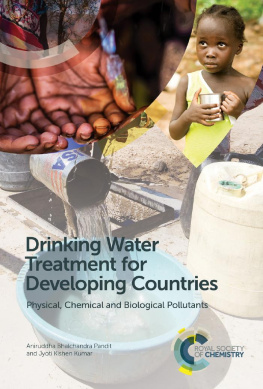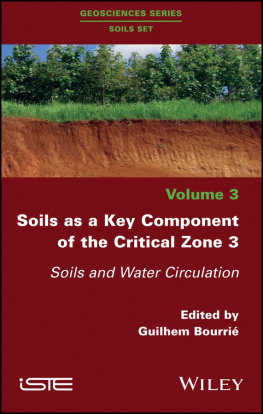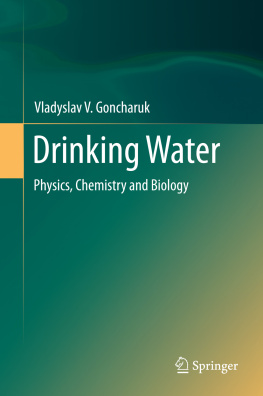Soft and Biological Matter
Series Editors
David Andelman
School of Physics and Astronomy, Tel Aviv University, Tel Aviv, Israel
Wenbing Hu
School of Chemistry and Chemical Engineering, Department of Polymer Science and Engineering, Nanjing University, Nanjing, China
Shigeyuki Komura
Department of Chemistry, Graduate School of Science and Engineering, Tokyo Metropolitan University, Tokyo, Japan
Roland Netz
Department of Physics, Free University of Berlin, Berlin, Berlin, Germany
Roberto Piazza
Department of Chemistry, Materials Science, and Chemical Engineering G. Natta, Polytechnic University of Milan, Milan, Italy
Peter Schall
Van der Waals-Zeeman Institute, University of Amsterdam, Amsterdam, Noord-Holland, The Netherlands
Gerard Wong
Department of Bioengineering, California NanoSystems Institute, UCLA, Los Angeles, CA, USA
Soft and Biological Matter is a series of authoritative books covering established and emergent areas in the realm of soft matter science, including biological systems spanning all relevant length scales from the molecular to the mesoscale. It aims to serve a broad interdisciplinary community of students and researchers in physics, chemistry, biophysics and materials science.
Pure research monographs in the series, as well as those of more pedagogical nature, will emphasize topics in fundamental physics, synthesis and design, characterization and new prospective applications of soft and biological matter systems. The series will encompass experimental, theoretical and computational approaches. Topics in the scope of this series include but are not limited to: polymers, biopolymers, polyelectrolytes, liquids, glasses, water, solutions, emulsions, foams, gels, ionic liquids, liquid crystals, colloids, granular matter, complex fluids, microfluidics, nanofluidics, membranes and interfaces, active matter, cell mechanics and biophysics.
Both authored and edited volumes will be considered.
More information about this series at http://www.springer.com/series/10783
Gertz I. Likhtenshtein
Biological Water
Physicochemical Aspects
1st ed. 2021

Logo of the publisher
Gertz I. Likhtenshtein
Department of Chemistry, Ben-Gurion University of the Negev, Beer-Sheva, Israel
Institute of Problems of Chemical Physics, Russian Academy of Science, Chernogolovka, Russia
ISSN 2213-1736 e-ISSN 2213-1744
Soft and Biological Matter
ISBN 978-3-030-82502-7 e-ISBN 978-3-030-82503-4
https://doi.org/10.1007/978-3-030-82503-4
The Editor(s) (if applicable) and The Author(s), under exclusive license to Springer Nature Switzerland AG 2021
This work is subject to copyright. All rights are solely and exclusively licensed by the Publisher, whether the whole or part of the material is concerned, specifically the rights of translation, reprinting, reuse of illustrations, recitation, broadcasting, reproduction on microfilms or in any other physical way, and transmission or information storage and retrieval, electronic adaptation, computer software, or by similar or dissimilar methodology now known or hereafter developed.
The use of general descriptive names, registered names, trademarks, service marks, etc. in this publication does not imply, even in the absence of a specific statement, that such names are exempt from the relevant protective laws and regulations and therefore free for general use.
The publisher, the authors and the editors are safe to assume that the advice and information in this book are believed to be true and accurate at the date of publication. Neither the publisher nor the authors or the editors give a warranty, expressed or implied, with respect to the material contained herein or for any errors or omissions that may have been made. The publisher remains neutral with regard to jurisdictional claims in published maps and institutional affiliations.
This Springer imprint is published by the registered company Springer Nature Switzerland AG
The registered company address is: Gewerbestrasse 11, 6330 Cham, Switzerland
Preface
The role water, which is a crucial key component in the development of all aspects of life on Earth, in chemistry, biology, industry, and everyday life of human being cannot be overemphasized. Water provides an important chemical contribution to the functioning and degradation of biological systems. Water represents on average 5560% of the human body weight and is distributed throughout the body and organs. Health, life expectancy, daily comfort, and mood of every human being largely depend on the body water balance. Water plays a central role in regulating cell volume, nutrient transport, waste removal, and thermal regulation and provides a medium for biological reactions Adequate hydration is crucial in maintaining optimal physical and mental functioning, and the need for a fast and reliable hydration status assessment in behavioral medicine research has become increasingly important.
Water is fascinating in all its phases, forms, and states of aggregation and is unique in its number of anomalous properties. Seventy four anomalous properties of liquid are connected to its ability to form up to four well-defined hydrogen bonds allowing for different local structural arrangements. Classical and modern physical chemistry, chemical physics, chemical kinetics, organic, inorganic, and quantum chemistry provide an arsenal of physical methods and establish a basis for the investigation of structure and action mechanism of processes involving water.
Research in this area which combines fundamental importance of human welfare and intellectual fascination with exploring the unknown will promote solving exciting and complicated problems in biochemistry, biophysics, and medicines related to biological water (ec ee oya, y e oe).
The book is a view on the subject from a physical chemist with the long and broad expertise in chemical biophysics, enzyme catalysis, and physical methods of studying structure and dynamics of biological systems including hydrated biological molecules, in particular. The book is not intended to provide an exhaustive survey of each topic but rather a discussion of their theoretical and experimental background and recent developments. The literature on water is so vast, with so many scientists having made important contributions in the area that it is impossible in the space allowed for this book to give a representative set of references. In fact, for each section in this area, one can write several books. The author apologizes to those he has not been able to include.
Chapter is devoted to clinical aspects of water.
The book, as a whole, and separate chapters can be used as a subsidiary manual for instructors and graduate and undergraduate students of university chemistry, physics, biophysics, biochemistry, physiology, and medicine.
The department of Chemistry, Ben-Gurion University of the Negev and Institute of Problem of Chemical Physics, Russian Academy of Science, provided excellent conditions for writing this book for which the author is extremely grateful.
Gertz I. Likhtenshtein
Beer-Sheva, Israel Chernogolovka, Russia













